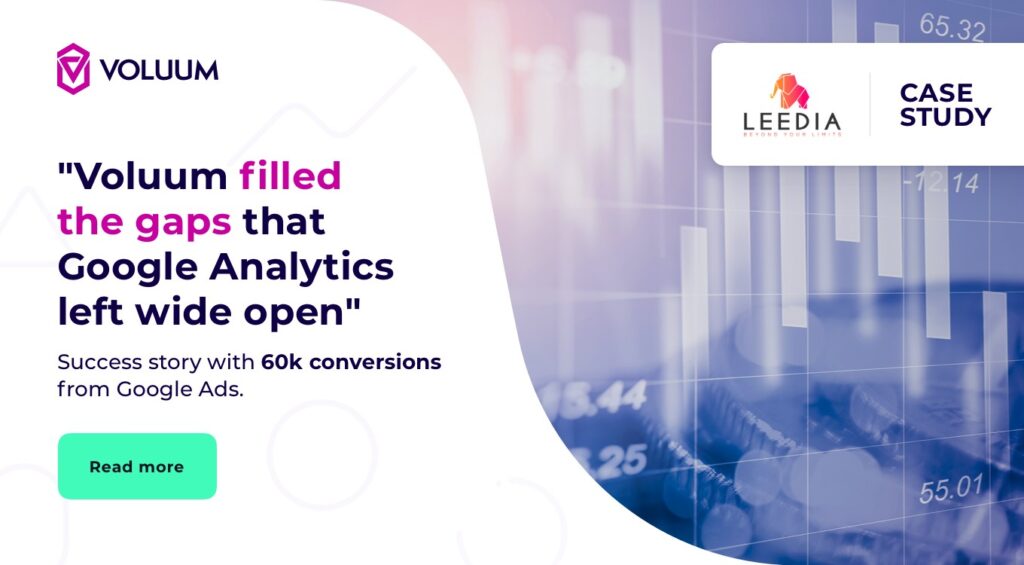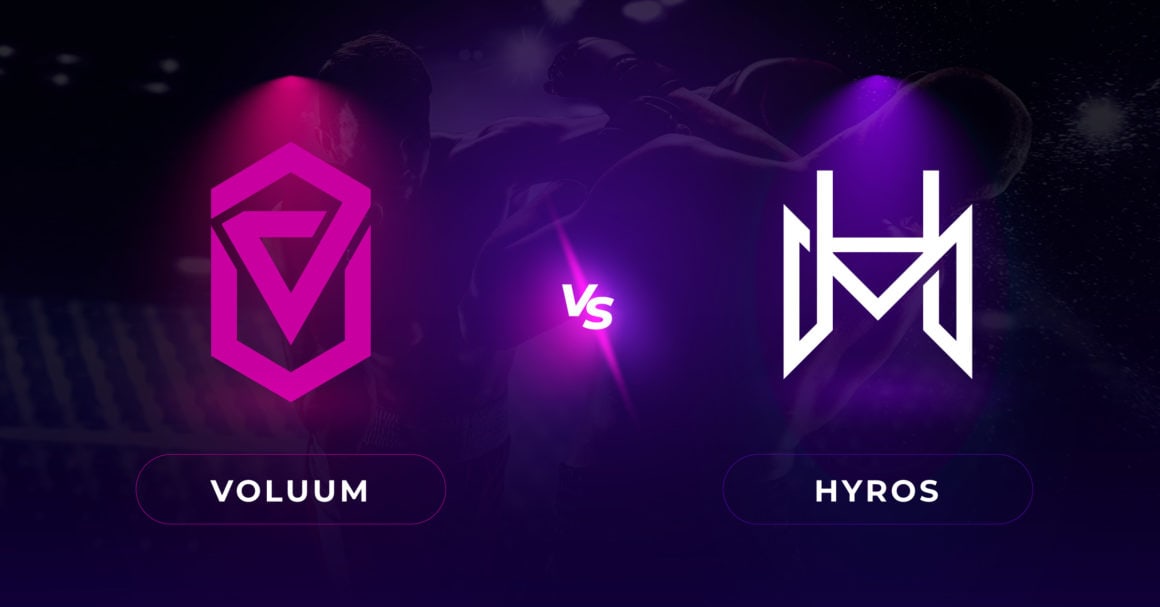Every once in a while, there is some buzz on the Internet about a new platform that will revolutionize tracking. The herd mentality and the aura of innovation or mystery makes advertisers frantically rush to that newcomer.
The same story is with Hyros, one of our newest competitors.
We like competition. We believe that competition makes us better, and because of that, we wish all the best to all other affiliate ad trackers.
And we didn’t put “competition” in quotation marks as Hyros did on its website because we should all respect each other.
With all the bold claims that newcomers often have, it’s worth asking, how is it that they were the only ones to figure out how to do things better or cheaper?
We don’t mind being put against any other platform for all customer types: performance marketers, agencies, affiliate marketers. We are open about how we operate and what we have to offer.
So, let’s look at Hyros and what it brings to the affiliate table, and then, how all this stacks up against Voluum.
The Promise
Hyros is Hyper-Accurate Tracking For Digital Businesses, according to its website. Hyros boasts of its tracking mechanisms – and this appears to be the one area of focus where it claims to outpace other companies.
The supposed accuracy of tracking is based on integrations with various elements of a typical sales funnel.
When you have an item to sell, you often advertise it on Google, use a payment provider, and maybe an email marketing service. And Hyros integrates these platforms to bring data from more sources than, let’s say, Google Analytics.
Unfortunately, the sources of data do not include postbacks. Affiliates or performance marketers that get their offers from third party platforms would not be able to track conversions with Hyros.
But we are ready to admit that, for people that advertise their own ecommerce offers, Hyros may be a good fit. Provided that they are willing to turn their blind eye to some severe limitations of Hyros, which we will discuss later.
We don’t want to talk trash about our competitor (see, no quotation marks again). We want to provide an honest look into how this and our platforms work, so users can make informed decisions.
What Hyros Really Is
Hyros often compares itself to Google Analytics and there’s a reason for that. It is more of a direct competitor for them than for Voluum. Hyros improves some of the Google Analytics shortcomings without delivering many features that are usually necessary for most affiliates.
The core Hyros promise is that it tracks users more accurately than Google Analytics by integrating with more platforms and passing more precise conversion data back to Google Ads or Facebook. This in turn allows these platforms AI to work better.
Hyros doesn’t have its own AI or built-in optimization tools, rather it primarily allows Google or Facebook AIs to work better.
It’s noteworthy that Voluum can also pass conversion data to both of these platforms, including conversions tracked using S2S postback URL – something that Hyros cannot do.
If you advertise with Hyros outside the ecosystem of Google or Facebook, or want to do any additional optimization, you are out of luck.
Voluum works great both inside and outside Google’s ecosystem. Check out this great case study about a performance marketing agency called Leedia that used Voluum to properly scale up their business.

Hyros vs Voluum
Voluum has been built to be far more than an analytical tool. Voluum offers its customers the following options that Hyros users cannot benefit from:

Automation. Integration with other platforms is not only about passing cost or conversion data between them. Voluum also allows you to set sophisticated automation rules based on IF / THEN principles.

Path alterations. If you want to change the path of a user on the fly, you have several options in Voluum. You can use:
- Rule-based paths to send traffic to different destinations based on its characteristics.
- Offer, Lander or path weights for an uneven distribution of traffic.
- Traffic Distribution AI mechanism that automatically governs the amount of traffic each offer, lander or path can get to achieve the best results.

Extensive reporting. Voluum offers more detailed reports with more grouping or drill-down options and more data points.

Anti-Fraud Kit. Hyros doesn’t offer any bot-detection mechanisms and relies solely on what Google or other platforms send its way. Voluum offers a complex solution that allows you to check your traffic for various signs of bot activity, block IP addresses and even set up bot traps.

Markers, column templates, custom columns. Voluum is designed to be flexible and support various working styles, from small affiliates to big companies. They can use all these features and more to customize Voluum to their needs.
We didn’t want to have an endless list of features. We could go on. But rather than having a boring enumeration, we wanted to quickly point out what you will be missing out on if you decide to go with Hyros.
Acceptance
If you don’t mind losing all this, there’s still one problem with Hyros. They are very exclusive and work only with vetted customers that they choose based on undisclosed criteria.
You definitely need to be big. 10k ad spend per month is a minimum for them. But this does not guarantee you to get access to Hyros. They may still reject you.
In contrast, Voluum accepts all customers, with pricing plans matching different scale levels. We are open for anyone and open about how much our tool costs.
Data Safety in Voluum vs in Hyros
If you have read our recent article about data safety in Voluum, you should know that not only the technology matters in that aspect. The country of registration is also a factor, as it defines the data safety legislation each company has to abide by.
Hyros is a Texan company. As a reminder, the US in general does not have any personal data protection laws like the European Union has in the form of GDPR. There are some state-level regulations, with the most famous California Privacy Rights Act as a prime example.
However, there are no Texan data privacy laws apart from those regarding health information.
You are not tracking health information, are you?
In comparison, Voluum is developed by a company based in Poland, an EU-member state. This puts several obligations on us that simply makes your data far more secure.
Security is more than just two-factor authentication that Hyros doesn’t seem to have.
Company Credibility
By the looks of it, Hyros is a product of one person. Hyros’s CEO is in all promo materials and only his persona seems to be vouching for all of Hyros’ promises.
Voluum is a well-established player in the affiliate marketing world. You can meet us at conferences, talk to us. You can even take a tour around our office!
We have our pricing page put upfront, not waiting to surprise you after you invested some time in having a call with Hyros.
We are not one man’s game but a collective effort to deliver the best product we can.

Voluum promise
What Hyros offers are promises hidden behind a cool homepage and the CEO’s persona. You won’t learn how much the platform costs (it’s $500 or more), and that because of no postbacks the platform has a limited use to most affiliates. You won’t even know if you get accepted to the platform!
Good luck planning your business.
What Voluum can promise is that you will always be welcomed. That you will be supported along the way by personal onboardings, articles, documents, live webinars and even e-learning courses.
That you will always have an option to take a peek inside Voluum with this demo.
That our pricing will be honest and fair.
That we will put our assets not into hollow marketing, but to the development of Voluum.
That we will make an effort to visit all important conferences to hear from you and talk about your struggles.
That we will always put data safety and service reliability over any “magic” solution that looks good on paper but doesn’t deliver any value to customers.
(See, this is the correct way of using quotation marks).



